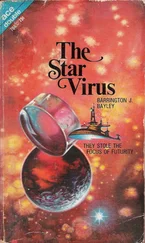As far as Pak could estimate, all that would take an absolute minimum of two minutes, but the chung-wi had assured him that two minutes after the hangar doors had slid open the spy was already dead. At worst, he might have got through to his contact in South Korea, but he’d certainly had no time to pass on a detailed report.
But whatever had happened, there was nothing else he could do about it now. The spy was dead and whatever knowledge he had gathered had died with him. Pak had obviously reprimanded the lieutenant for resorting to killing the man – if taken alive they could have used a variety of sophisticated techniques to loosen his tongue – but at least he hadn’t escaped, and now the final stages of their operation could begin.
The North Korean Air Force was still flying the antiquated Shenyang F-5 at T’ae’tan but, as Yi Min-Ho had discovered, only a few of the old fighter planes now remained there. All the Ilyushins had already been redeployed to the forward bases at Nuchonri and Kuupri, located on the west and east coasts respectively, just north of the DMZ.
Pak wondered if the South Korean spy had noticed the lack of aircraft movements. In fact the F-5s were there simply as camouflage, something to park on the hardstandings whenever one of the American spy satellites was due to pass overhead.
The real activity at T’ae’tan centred on the four newer, closely guarded aircraft shelters where Pak had so far assembled twenty-four MiG-25 interceptors, mostly from Russia, but two from Iraq, one from Algeria, another from Iran, and the remaining four from India. And it wasn’t just the aircraft themselves. Over the last three years he and his most trusted associates had bribed, suborned or blackmailed air force officers and NCOs from a number of foreign nations, and he now had a full maintenance team living in the curtained rooms of the new building almost adjacent to the hangars, as well as armourers and pilots. It also housed a virtually full inventory of spares and enough munitions to make the secret squadron of Foxbats a viable force.
The personnel enlisted had all been very well rewarded to change their allegiance – though not as handsomely as they believed because of the number of ‘superdollars’ included in their handouts of cash – and had all been promised substantial bonuses upon successful completion. Pak well knew that his government had no intention of honouring such a commitment. A bullet in the back of the head was a lot cheaper than a bonus of any size. The risk of loose talk was why all these foreign military personnel were accommodated here in the remote airfield at T’ae’tan rather than in Ugom or any other town.
Pak was now awaiting only the final two aircraft, and imminent delivery of the remaining munitions – the forty-eight R-40T air-to-air missiles which would bring his total arsenal up to one hundred and sixty-three. Known to NATO as the AA-6 Acrid, this is an essential component of the Foxbat’s high-level interception system: a Mach 4.5 missile with a thirty-kilometre range and carrying a seventy-kilogram high-explosive fragmentation warhead. Coupled with the Foxbat’s high-level capability and its immensely powerful Saphir-25 radar – NATO reporting name Fox Fire – it proves a highly effective weapon against high-flying, high-speed targets.
The Acrids were currently travelling by sea from Varna in Bulgaria, and would route through the Suez Canal to Bandar Abbas in Iran – the former Shah’s premier naval base – and from there they’d be flown direct to T’ae’tan itself. And once those had arrived, everything needed would be in place.
Office of the Associate Deputy Director of the Central Intelligence Agency, Langley, Virginia
Following the events of 11 September 2001, there was a major shake-up in the American intelligence organization, a community still reeling from shock at the destruction of the Twin Towers and the attack on the Pentagon. And more so from what many perceived to be a series of inexcusable failures of intelligence collection and analysis.
One of the major changes was the creation of an entire new bureaucracy: the Office of the Director of National Intelligence. Its function was to integrate and analyse all intelligence – domestic, foreign and military – and assess its impact on both homeland security and American interests abroad. With the creation of the ODNI, the post of DCI or Director of Central Intelligence – the head of the CIA and the most senior intelligence community post in the United States – had ceased to exist.
This was a pity, because Walter Hicks would probably have made a very good DCI. He’d been the Director of Operations (Clandestine Services), and acting DCI, when a crisis had arisen that took America to the brink of thermonuclear war. His handling of the emergency had impressed the President. When the previous incumbent had retired for genuine health reasons as opposed to Washington-speak ‘health reasons’ – a euphemism for either sexual misconduct or some form of financial irregularity – Hicks had indeed been promoted, but not to the post of DNI. That job had gone to a career diplomat, probably because the White House didn’t trust a professional spook to regulate or represent the interests of other professional spooks.
Instead, he’d become the new Associate Deputy Director of the CIA, and he wasn’t much enjoying it. Hicks had always been a hands-on, let’s-kick-some-ass kind of guy, and his enhanced salary didn’t entirely compensate for having to be politically correct at all times and talk nicely to time-serving politicians demanding information that he personally didn’t think they had any right or need to know.
Since his appointment, his already sparse fair hair had begun receding to the point where he was seriously considering shaving his head completely. He had even sold his forty-five-foot catamaran because he no longer had any spare time to sail her.
So it was with a certain sense of relief that he noted Richard Muldoon’s name showing up in the appointments diary on his computer. He knew Muldoon well enough to realize that the gangling Head of the Directorate of Science and Technology – nobody had suggested changing the name of that particular section of the Agency – wouldn’t bother him with anything trivial.
‘Take a pew, and grab a coffee, Richard. What’ve you got?’
Muldoon put the file he carried on the conference table and helped himself from the coffee pot – he sometimes thought Hicks should simply take his caffeine intravenously and save all that messing around with cups and beans and percolators – then sat down opposite the ADD.
‘We’ve received Flash traffic direct from National Intelligence Service headquarters at Naegok-dong in Seoul. The request came from Kang Jang-Ho – who’s number two to Bae Chang-Su – but Bae himself countersigned it.’
‘I’m pretty busy and you’ve read this file, so just give me the short version.’
Muldoon was used to dealing with Hicks, and had anticipated him. ‘It’s pretty simple. For the last few months the NIS has been picking up whispers about unusual air activity in and around the south-west corner of North Korea. Unfamiliar aircraft seen flying over the land and occasionally over the Yellow Sea, even the occasional sonic boom, that kind of thing. They sent out surveillance vessels, mainly commandeered fishing boats to allow an element of plausible deniability if they were intercepted, but their observers didn’t spot anything they weren’t expecting.
‘The only military airfield in that whole area is T’ae’tan, located right here.’ Muldoon pulled a map out of his file and opened it on the table. ‘It’s one of the closest North Korean airfields to Seoul, so the NIS has always tried to keep an eye on any new developments there.’
Читать дальше












